Patty Hager, 52, had been doing everything right.
Entering middle age, the Grand Rapids, Michigan, woman decided to get healthy and lose weight.
She even joined a boot camp that offered intense exercise.
A practice manager for the Spectrum Health outpatient psychiatry and behavioral medicine team, Hager understood the importance of good health habits for body and mind.
“I’m a fast-paced, active person,” she said. “During the summer, I love golf and I’ve always been a walker. But as my weight crept up in middle age, I thought it was time to incorporate regular exercise.”
At first, her approach went well.
She lost 19 pounds.
Then it happened.
At a March 6 exercise class, she and other boot camp participants got moving with an exercise that involved a fair amount of jumping.
With a little twist, Hager “landed funny.”
“A searing pain shot through my left knee,” she said. “I managed to finish the exercise routine, but then limped away, thinking, ‘I hurt my knee—bad.’”
The pain didn’t ease.
She went to see the team at Spectrum Health Orthopedic and Sports Medicine.
“Amanda Scott, the physician assistant, gave me an injection of steroids in my knee, although she warned me it might not be enough,” Hager said. “She was right. In two days, the pain was back.”
Scott suspected a tear, prompting Hager to schedule an MRI.
Tear repair
While awaiting her MRI appointment, she halted all exercise and took anti-inflammatory medicine.
“I avoided taking the stairs or took them very slowly,” Hager said. “I was working from home at this point, so at least that saved me some movement.”
The MRI soon revealed she had suffered two tears in her knee.
A doctor referred her to Travis Menge, MD, an orthopedic surgeon at Spectrum Health Medical Group Orthopedics and Sports Medicine.
Dr. Menge recommended surgery.
“Patty had an acute meniscus tear, a displaced flap of the meniscus, and she had already tried all the more conservative treatments—medication, icing, rest,” Dr. Menge said. “But they hadn’t worked.”
Dr. Menge’s office scheduled Hager’s outpatient knee surgery for June 8.
Leading up to surgery, Hager worked with Spectrum Health physical therapist Gina Terhune.
“I thought … physical therapy would be like regular exercises, but Gina customized the therapy for me,” Hager said. “She even had me demonstrate my golf swing.”
Terhune delved into Hager’s lifestyle to identify the types of activities she enjoys. She also taught Hager about low-impact exercises that reduce the risk of injury.
The work helped strengthen her leg before surgery and improved her recovery afterward.
“I learned what I can do and what I shouldn’t do at my age,” Hager said. “It can also make a difference whether you’ve been active all your life, or just recently started.”
Speedy recovery
Hager’s surgery started in the morning, and she was home resting by noon.
“The surgery itself commonly takes only 30 to 45 minutes and is performed in a minimally-invasive fashion through just two small poke holes,” Dr. Menge said.
He said a torn meniscus is one of the more common knee injuries he sees in active people.
The meniscus is a piece of C-shaped cartilage connecting the shin bone to the thigh bone. Activities that involve forcefully twisting or rotating the knee can result in painful tears that sometimes require surgical repair.
“I use multi-modal pain management during surgery, including injections around the knee, to reduce the need for narcotic medications,” Dr. Menge said.
Hager stopped taking pain medication just three days after surgery.
“I was sore and I used crutches my first week, but it wasn’t horrible,” she said. “I used a cooling device that I could fasten around my knee to bring down the swelling.”
To maintain her range of motion, she resumed physical therapy the day after surgery.
“Patty has demonstrated excellent dedication and adherence to her physical therapy program in order to return to golf and organized fitness classes,” Terhune said.
Her therapy will continue for a month, focusing on sport-specific strengthening and education to help her safely return to activities, Terhune said.
“Recovery from this kind of surgery usually takes a couple of weeks,” Dr. Menge said. “And someone who is athletic can resume sports in four to six weeks.”
Dr. Menge works with many collegiate and professional sports teams throughout Michigan. He also works with the U.S. ski team.
His recommendation to athletes and active people? Cross-train for joint health.
“Avoid overloading your joints and muscles with repetitive motions,” he said. “If you are an avid runner, incorporate other low-impact sports such as cycling, swimming, spin class, elliptical, yoga or Pilates.”
Are you a baseball pitcher? Strengthen your legs and your core.
No matter what your sport, make sure you diversify your workout.
“Train every part of your body,” Dr. Menge said. “Wear equipment that fits properly and provides support. Whatever your activity, be sure sizing is right.”
Hager now incorporates that advice into her active lifestyle.
“I had thought this kind of injury would alter my lifestyle,” she said. “It didn’t. I plan to return to boot camp at six weeks. I didn’t have to modify my golf swing at all—and I’ve already gotten the OK to resume golfing.”
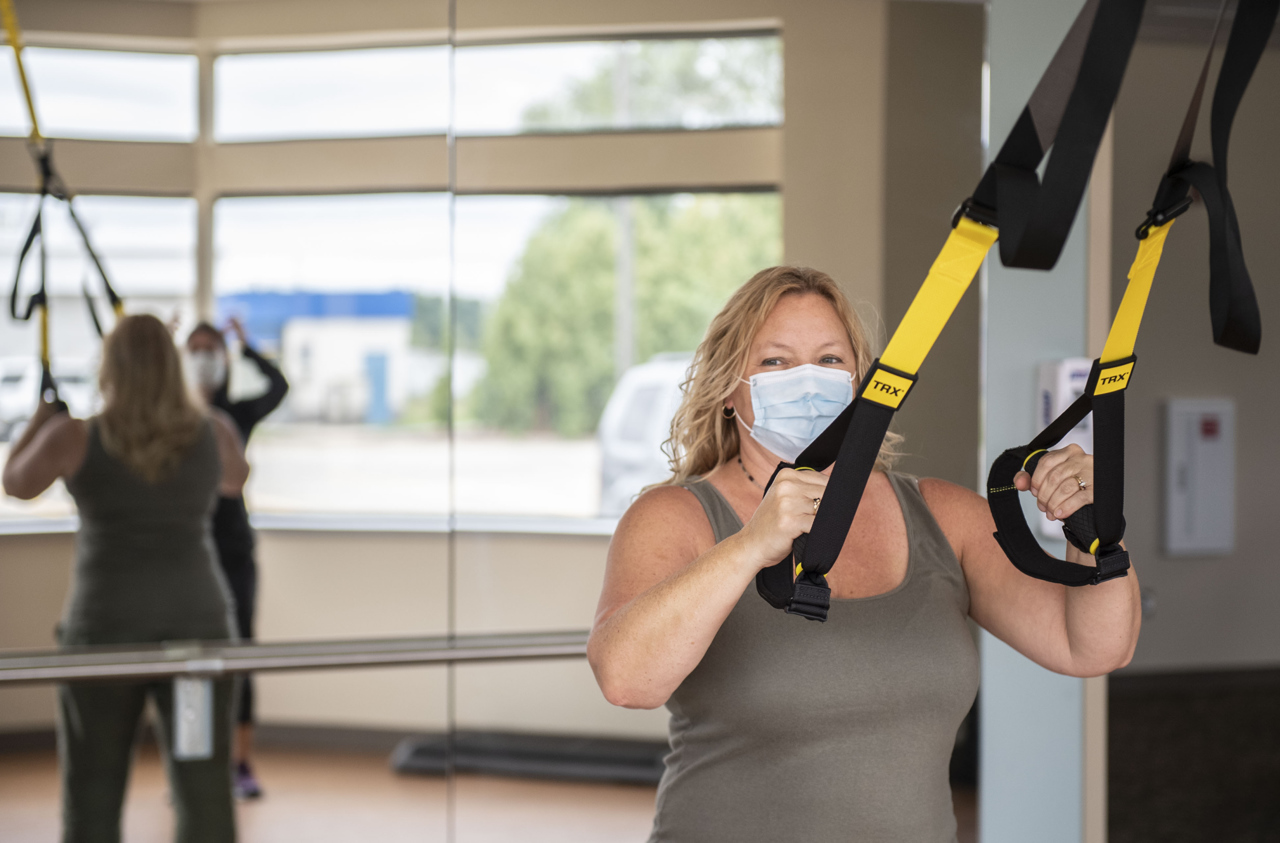

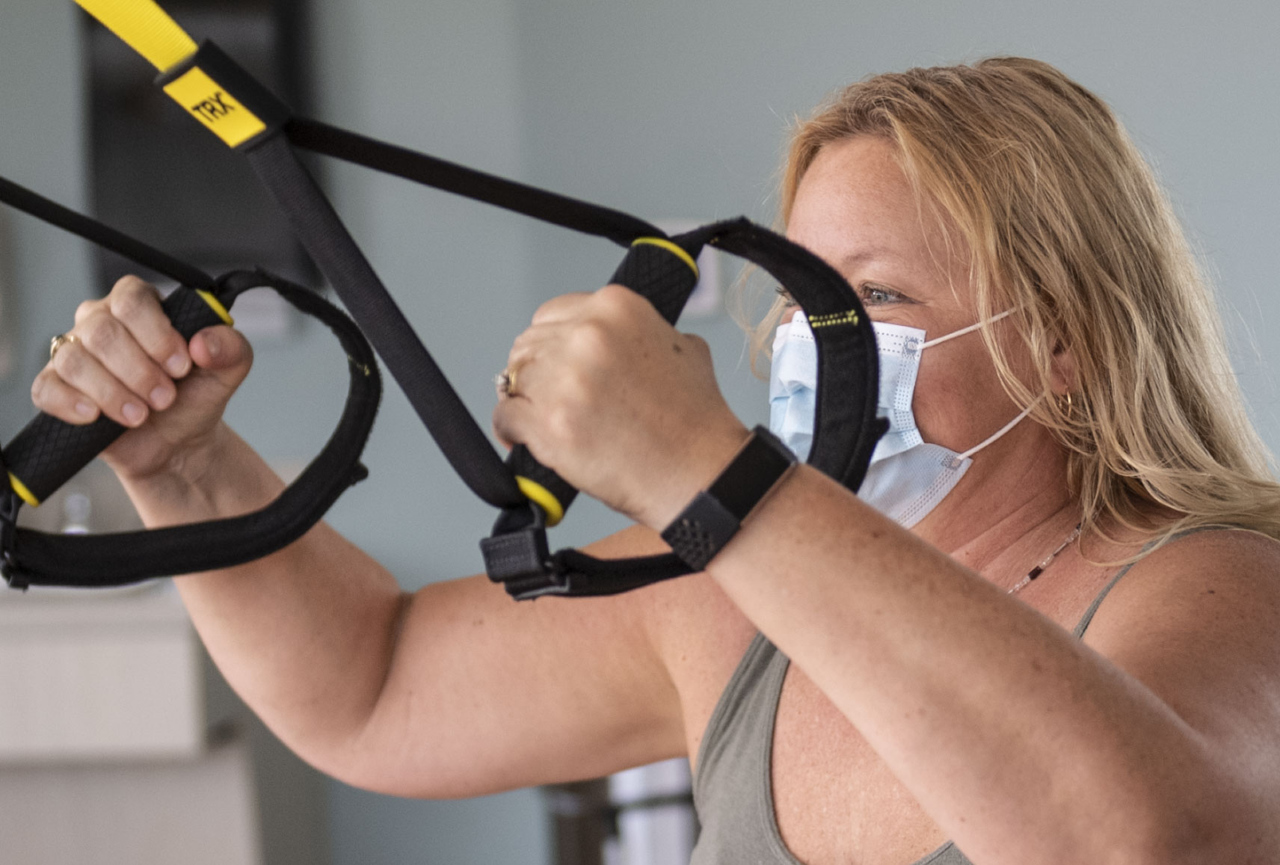
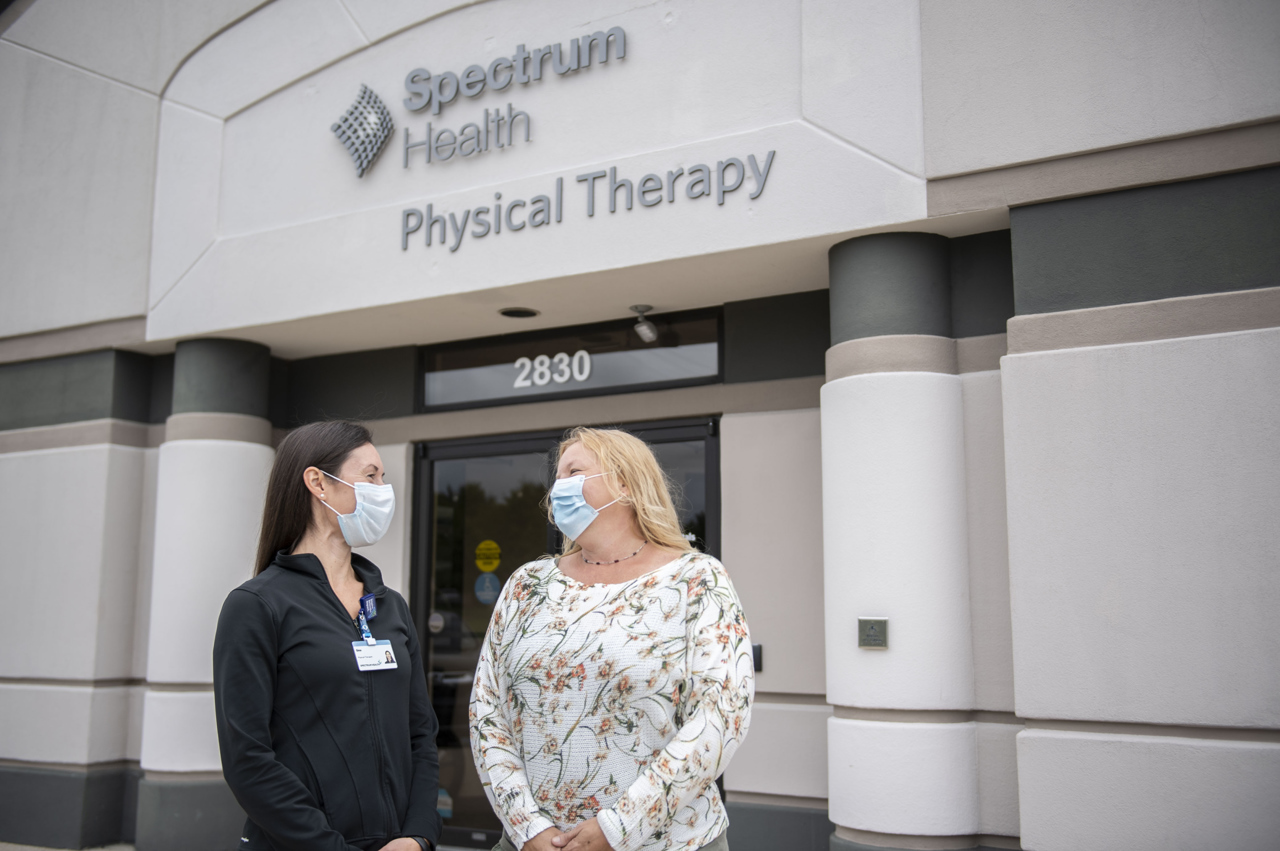
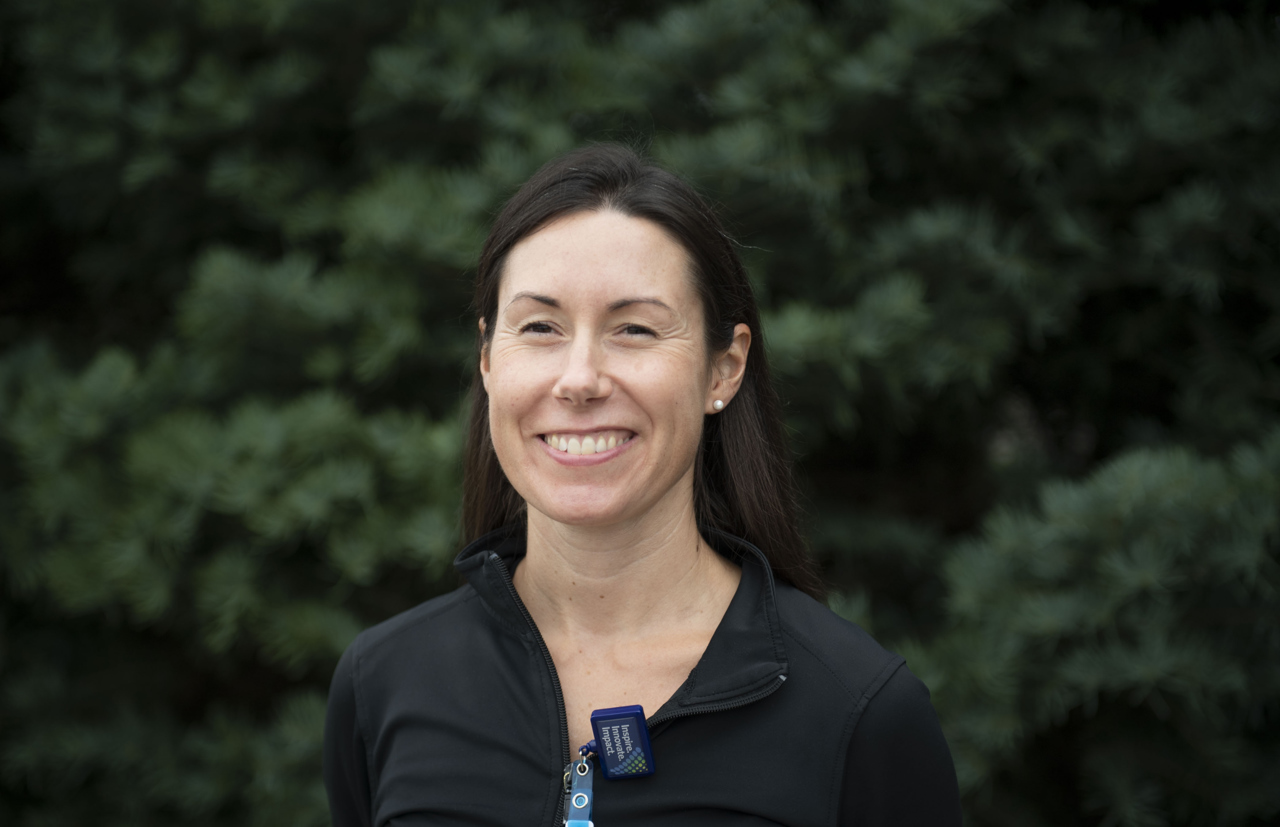
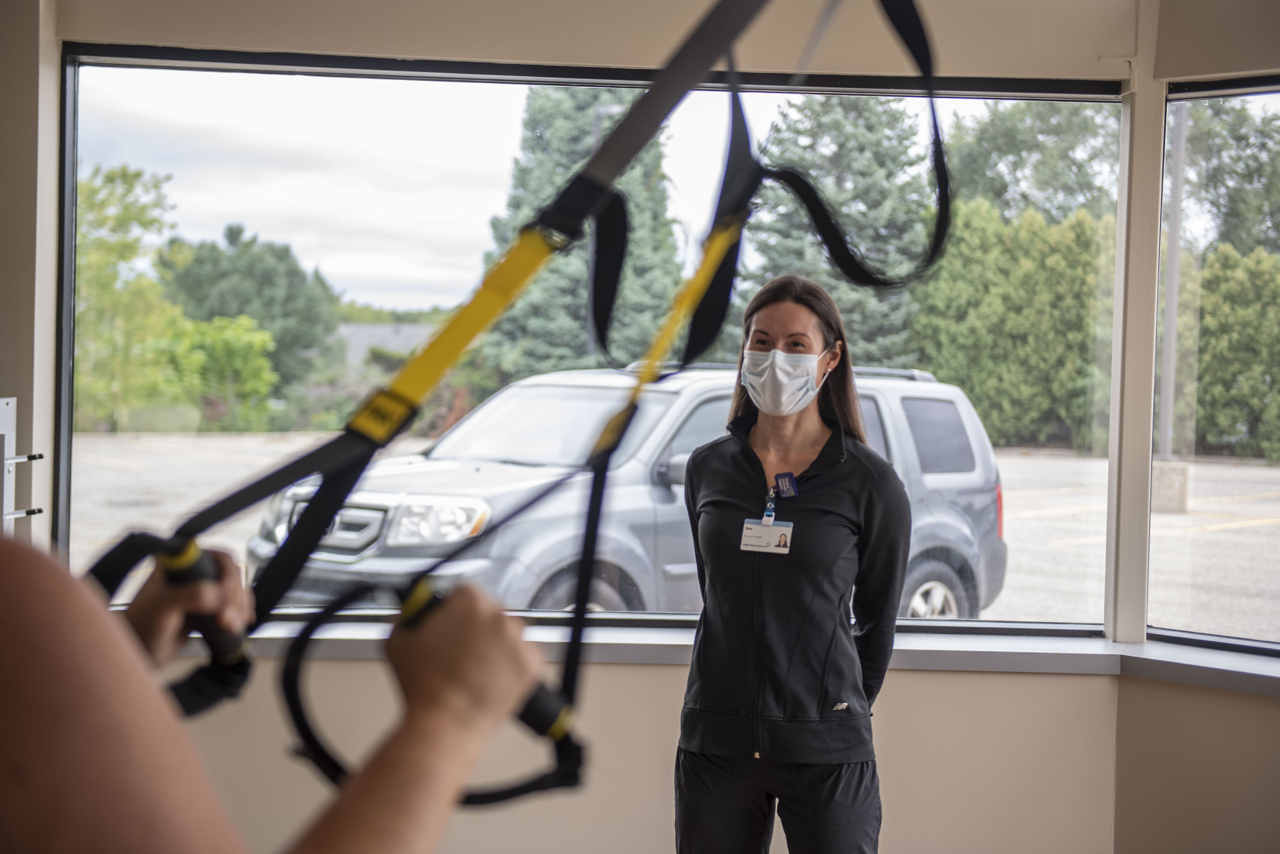
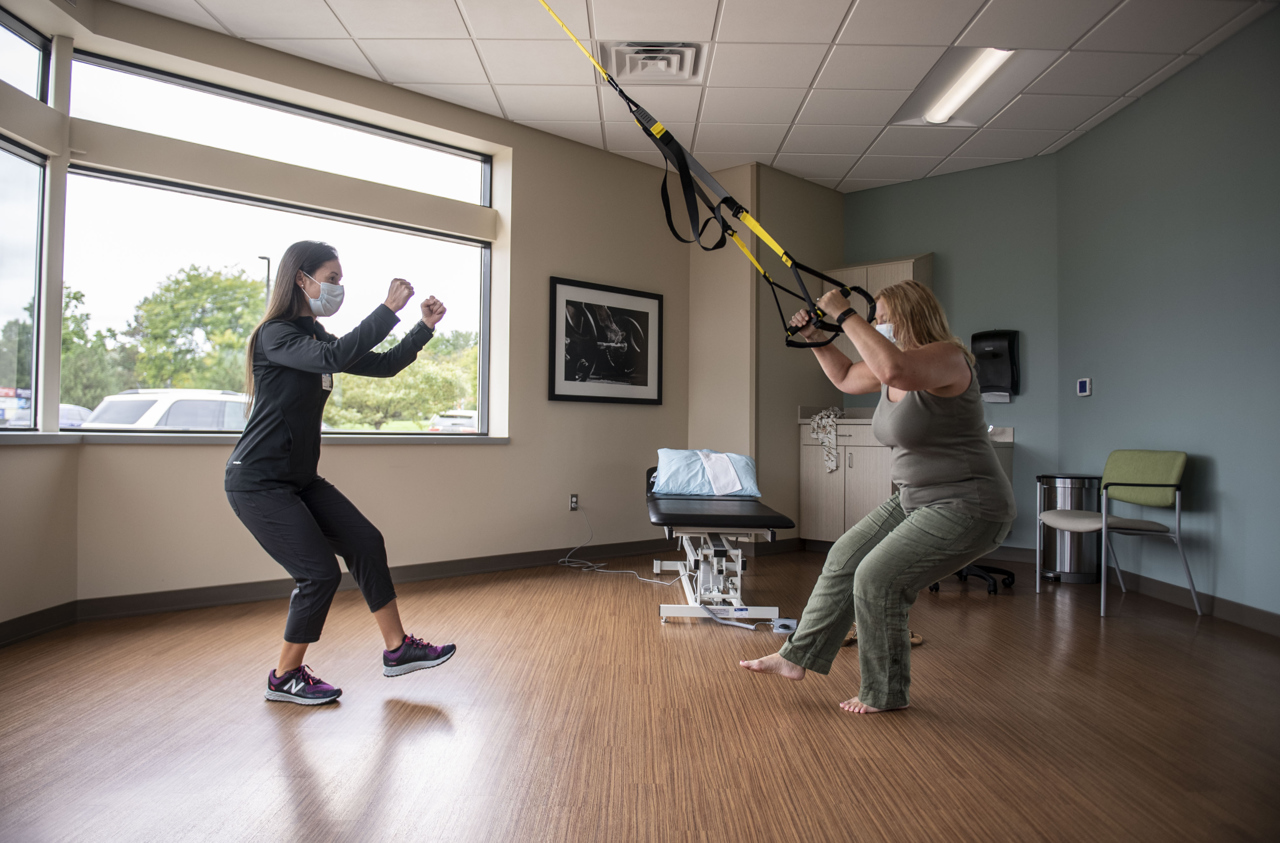
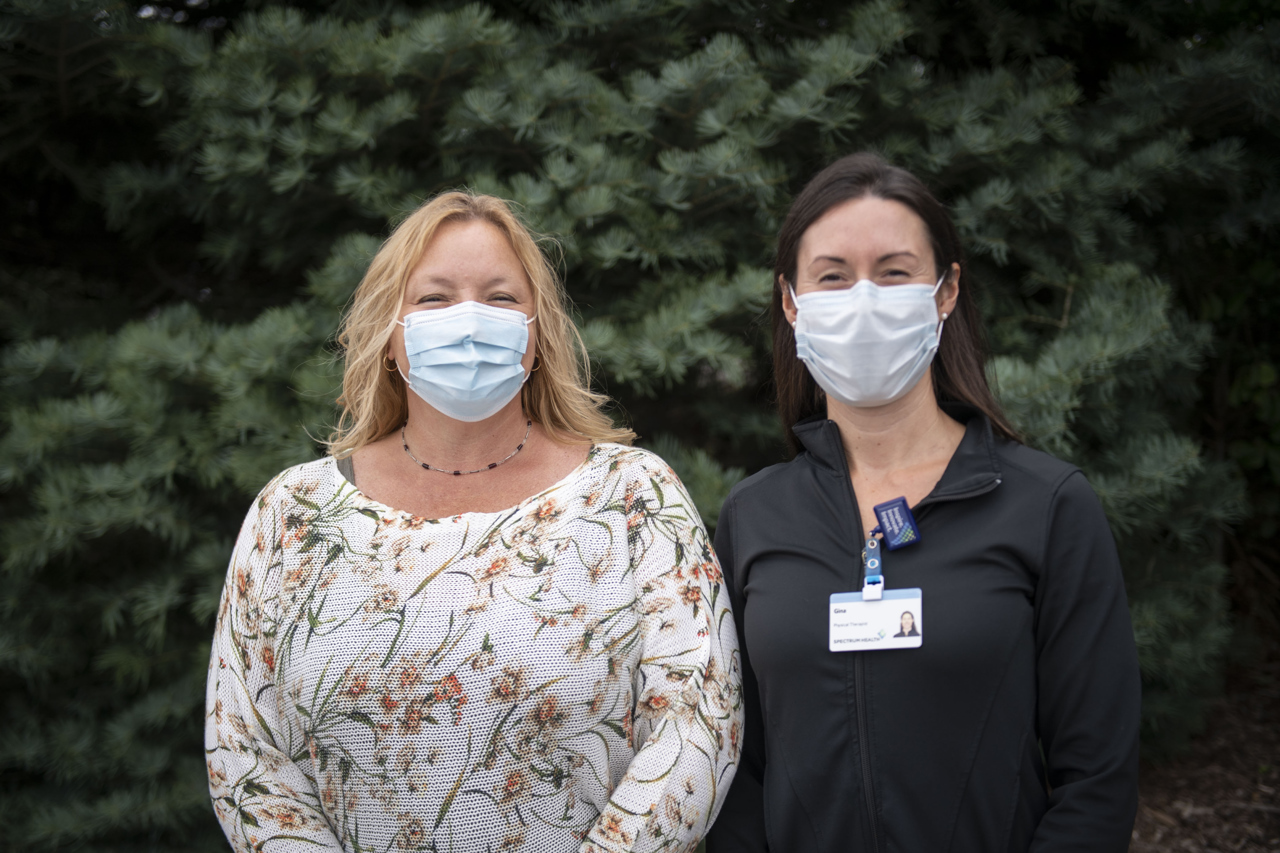
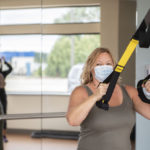

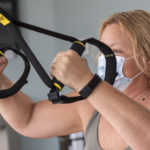


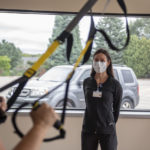
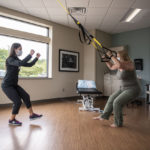


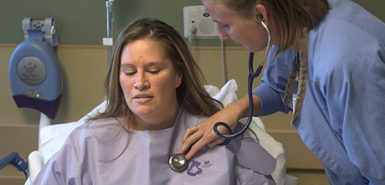 /a>
/a>
 /a>
/a>
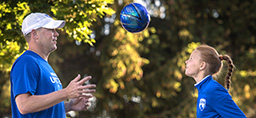 /a>
/a>
So proud of your diligence and drive to stay active and healhy! Bravo!